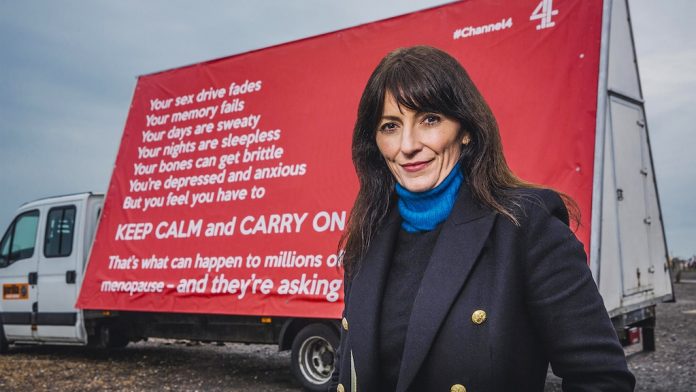Nicky Downes, NEU executive committee (NEU)
I was one of the few women that didn’t watch Davina McCall’s first menopause documentary ‘Sex, Myths and the Menopause’. As a trade union officer for the National Education Union (NEU), it was such a busy time supporting education staff in schools around Covid. But some of my women friends raved about it and said it made them feel included.
I had high hopes then that the follow up ‘Sex, Mind and the Menopause’ would be worth watching and would push the boundaries on women’s health.
To begin with it raised some really important points about women and work. The statistics are shocking: 44% of women say that menopause affects their work and one in ten women quit their job due to it.
The programme then featured a teacher who had been dismissed after menopause symptoms affected her work. At this point I expected Davina to talk about what women could do to be treated fairly at work – maybe mentioning their rights under the Equality Act – but all she referred to was how one manager had set up a successful menopause support group in a prison.
It was such a missed opportunity. A number of years ago, in a motion to the conference of the National Union of Teachers (a forerunner of the NEU), Jane Nellist and I raised the issue of how older women were losing their jobs in teaching and how this could be linked to menopause. We discussed how menopause is a workplace issue and that all schools should have policies and make adjustments.
It shocked us at the time how little younger women knew about the menopause, and how little understanding there was among managers, particularly men. It was noticeable that Davina included no men in her programme. Menopause was seen as a purely women’s issue.
I’ve continued to keep menopause on the agenda in both schools and the Local Authority in Coventry. One male trade union rep once said to me that menopause was the latest fad. He doesn’t say that any more, and he’s actually as vocal as I am in promoting the need for robust menopause policies.
I understand the focus on HRT and a medical approach to the menopause that Davina is promoting. It can be very beneficial, and we should be fighting for equal access to NHS resources for all women, and the trans and non-binary community. However, it is a choice to take HRT and not the panacea.
My mum had breast cancer that was directly linked to her long-term use of HRT. (She was also treated by the infamous surgeon Ian Paterson, but that’s a whole other story). I chose not to take it during my menopause. Davina McCall has achieved a great deal from raising the issues and educating women about the menopause. I just wonder if there should be another programme made that highlights how societal change and the work of trade unionists can bring about better working conditions for menopausal women that will also, of course, benefit all. Who doesn’t need a well-ventilated workspace and easy access to toilets? Maybe the title just wouldn’t be catchy enough.








